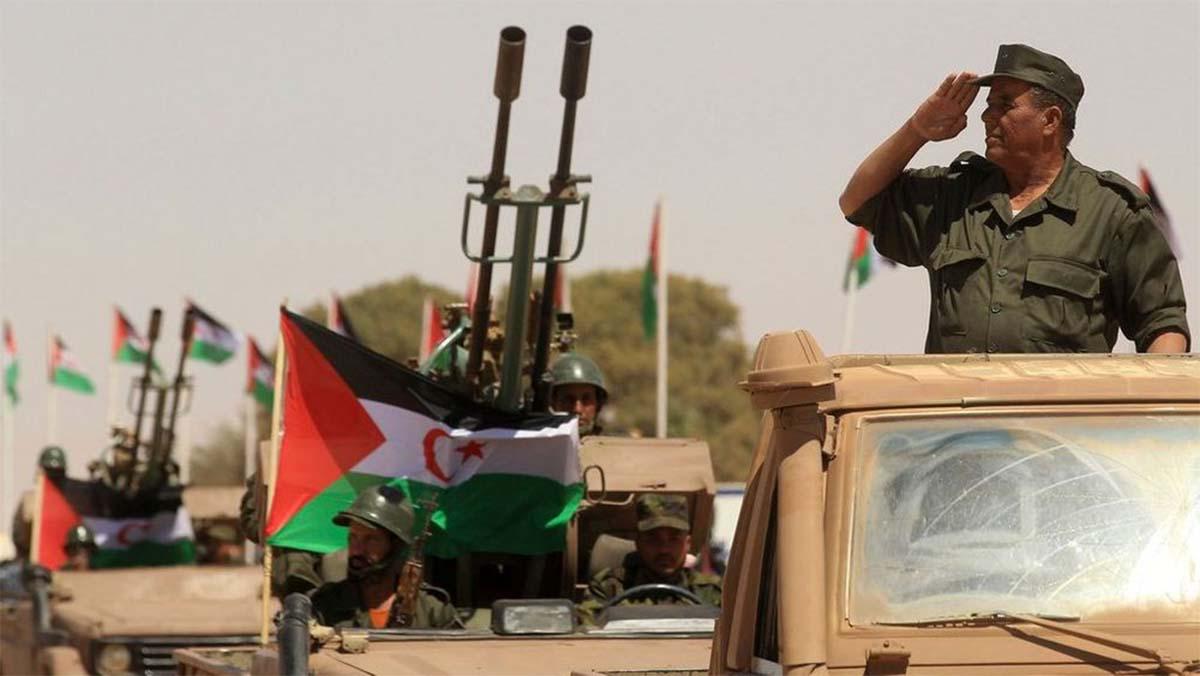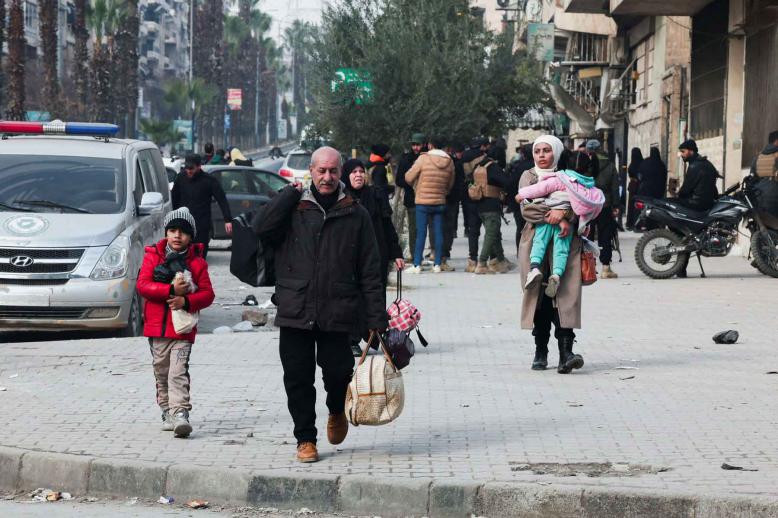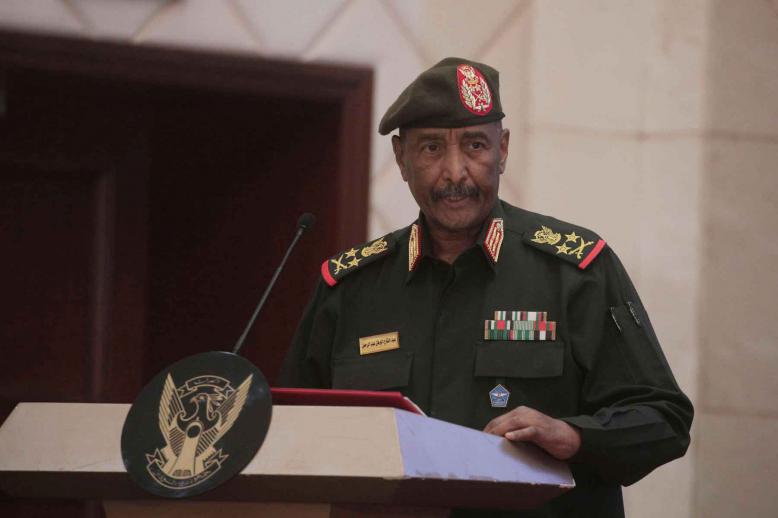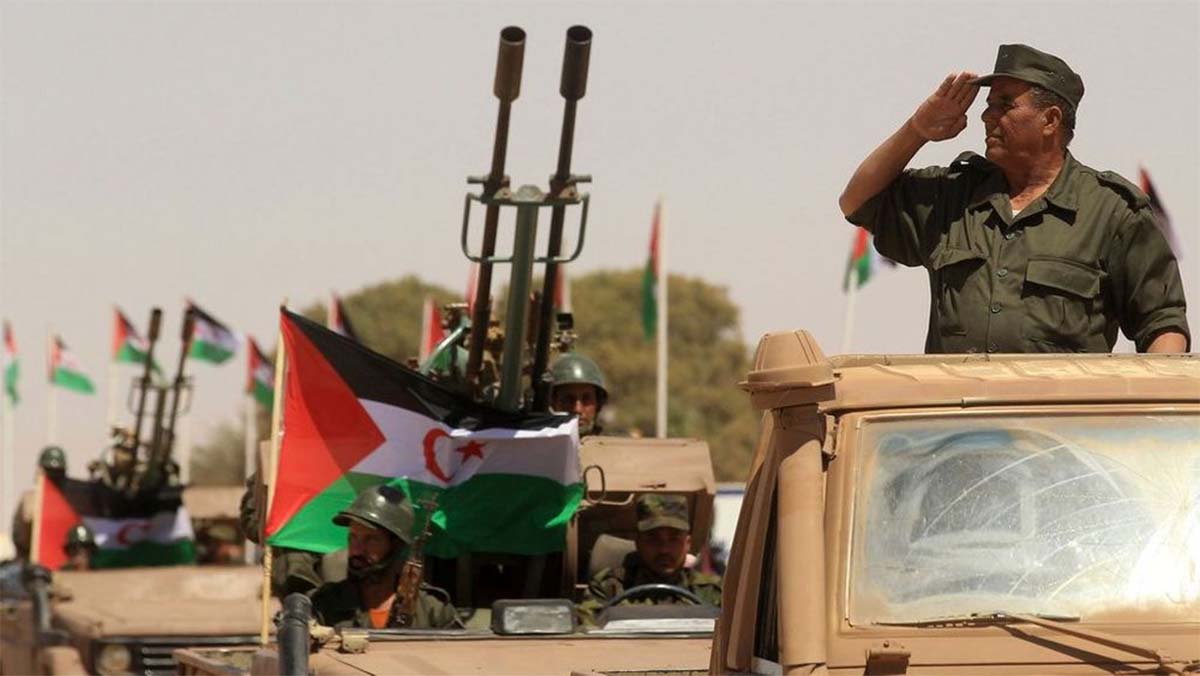Polisario among Iran’s ‘global terror network’ against Israel
LONDON - Israel is under attack from many countries and Iran’s proxies, including the separatist Polisario Front, according to German news website WELT.
Intelligence reports, which WELT was able to access, uncovered a trail all the way to the Tindouf camps in Algeria where a militia is taking shape there with the help of Iran-backed Lebanese Shiite militant group Hezbollah.
Hezbollah was set up by Iran's Revolutionary Guards in 1982 to fight Israeli forces that had invaded Lebanon. The heavily armed powerful group has seats in parliament and government and acts as Iran's spearhead in Lebanon and the region.
Christine Kensche, WELT’s Middle East Correspondent said the recordings and transcripts of telephone conversations between Polisario representatives and, an agent posing as a Hezbollah contact from the Ivory Coast. Mustafa Muhammad Lemine Al-Kitab is the Polisario liaison officer in Syria and responsible for the Middle East.
In a recorded phone conversation on October 23, around two weeks after the attack on Israel in which Palestinian militant group Hamas killed more than 1,400 people in a surprise attack on Israel, the agent asked Al-Kitab about the situation. The Polisario man replied: "Praise be to Allah. The boys are encouraged by the victory of the resistance and the actions against the Jews and the victory over them everywhere."
"I see that the resistance is flaring up everywhere. It has ignited in Gaza, it may break out in the Golan (...) and in the south (of Lebanon, ed.) and in the Shebaa Farms, and it will also break out in the Western Sahara and there will be a united resistance. Everyone will shoot from a different place (at Israel, editor's note)," Al-Kitab added.
The alleged Hezbollah representative and the Polisario envoy discussed possible joint attacks on Israel together with Hamas, Hezbollah, Algeria and Iran. Al-Kitab offered to support the Polisario Front, but emphasized that its resources were not yet sufficient to attack the Israeli embassy in Morocco, for example, and asked for even more support from Hezbollah and Iran.
The new intelligence gathering confirmed Morocco’s accusations that Iran-backed Hezbollah had been backing Polisario separatists.
In 2018, Morocco on broke off diplomatic ties with Iran, accusing the Islamic republic of using its ally Hezbollah to deliver weapons to the separatist Polisario Front.
Moroccan Foreign Minister Nasser Bourita told reporters that "Morocco has irrefutable proof, names and specific actions to corroborate the complicity between the Polisario and Hezbollah."
The decision to sever ties with Tehran is "in response to Iran's involvement, through Hezbollah, in allying itself with the Polisario over the past two years in order to target the security and higher interests of Morocco," he added.
According to Bourita, Iran and Hezbollah have had ties with the Polisario Front since 2016, when the Lebanese Shiite militant group set up a committee to support the Polisario.
After that, he said, a Hezbollah military delegation visited the Polisario Front in the Tindouf area in southwest Algeria.
Hezbollah quickly denied that it was arming the Polisario, accusing Morocco of caving to "foreign pressure."
The official press agency of the separatists published October 29 a press release on its website the Polisario’s claim of the attacks against the “entrenchments” of the Royal Armed Forces (FAR) in the Morocco’s southern regions of Mahbès, Smara and Farsia, that killed one person and injured three others.
The attacks once again substantiated the intelligence reports about the Polisario separatists’ coordinated attacks with Hezbollah.
Morocco is one of four Arab states - alongside the United Arab Emirates, Bahrain and Sudan - that signed "Abraham Accords" peace pacts with Israel following a US-driven diplomatic initiative in 2020.
Rabat boosted ties with Israel and agreed to move towards full diplomatic relations in return for US recognition of its sovereignty over the Sahara territory, which is claimed by an Algeria-backed separatist movement.
WELT discovered last January a hawala network - a traditional system of transferring money that is not regulated in many countries - operating out of Spain and the Tindouf camps in Algeria and maintaining close contacts with Polisario, Iran, Lebanon and Hezbollah.
The German news website accused Iran of disguising its financial aid to Hezbollah, Hamas and presumably also to the Polisario Front with the help of hawala networks whose cash flows are almost untraceable.






